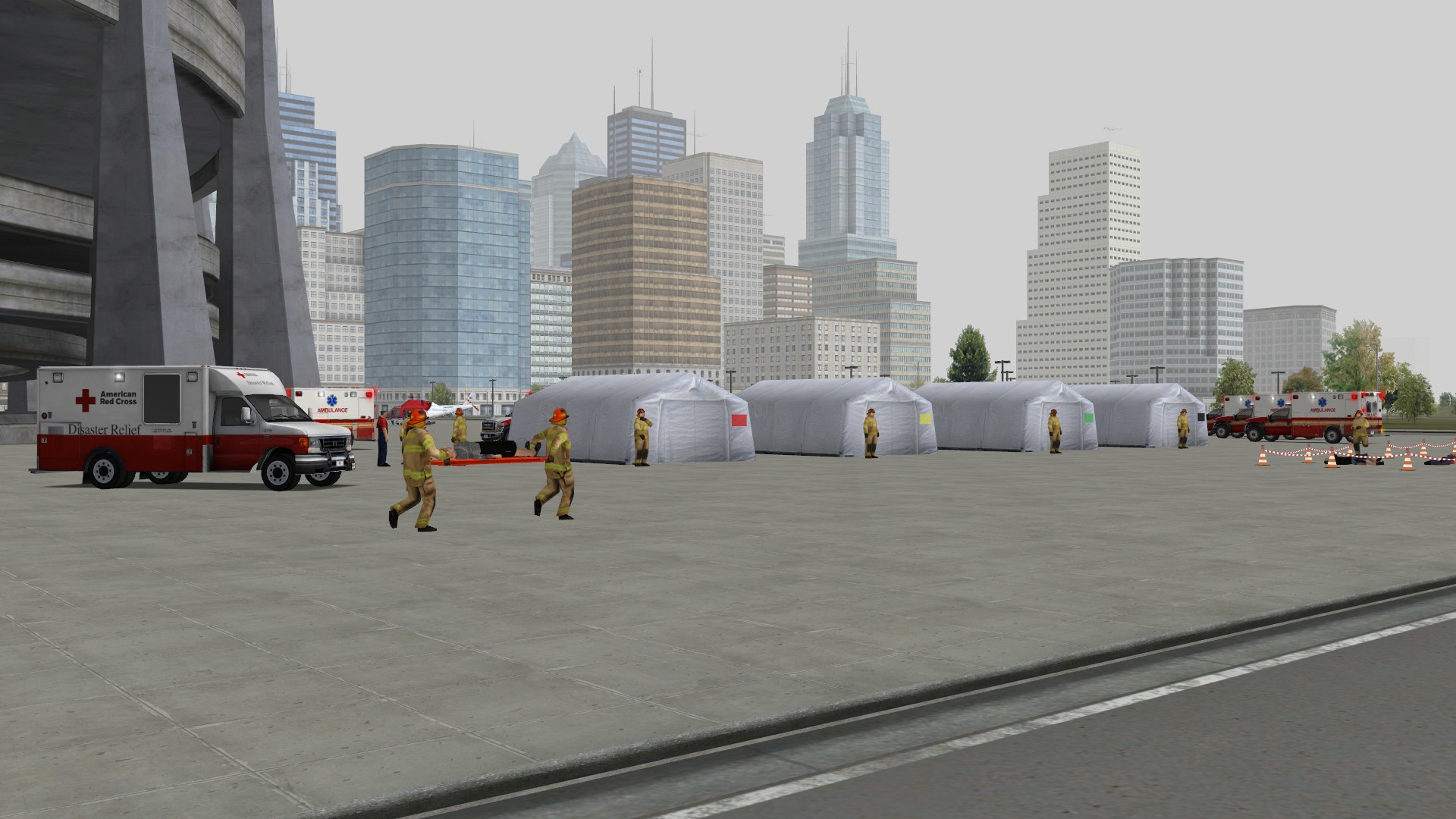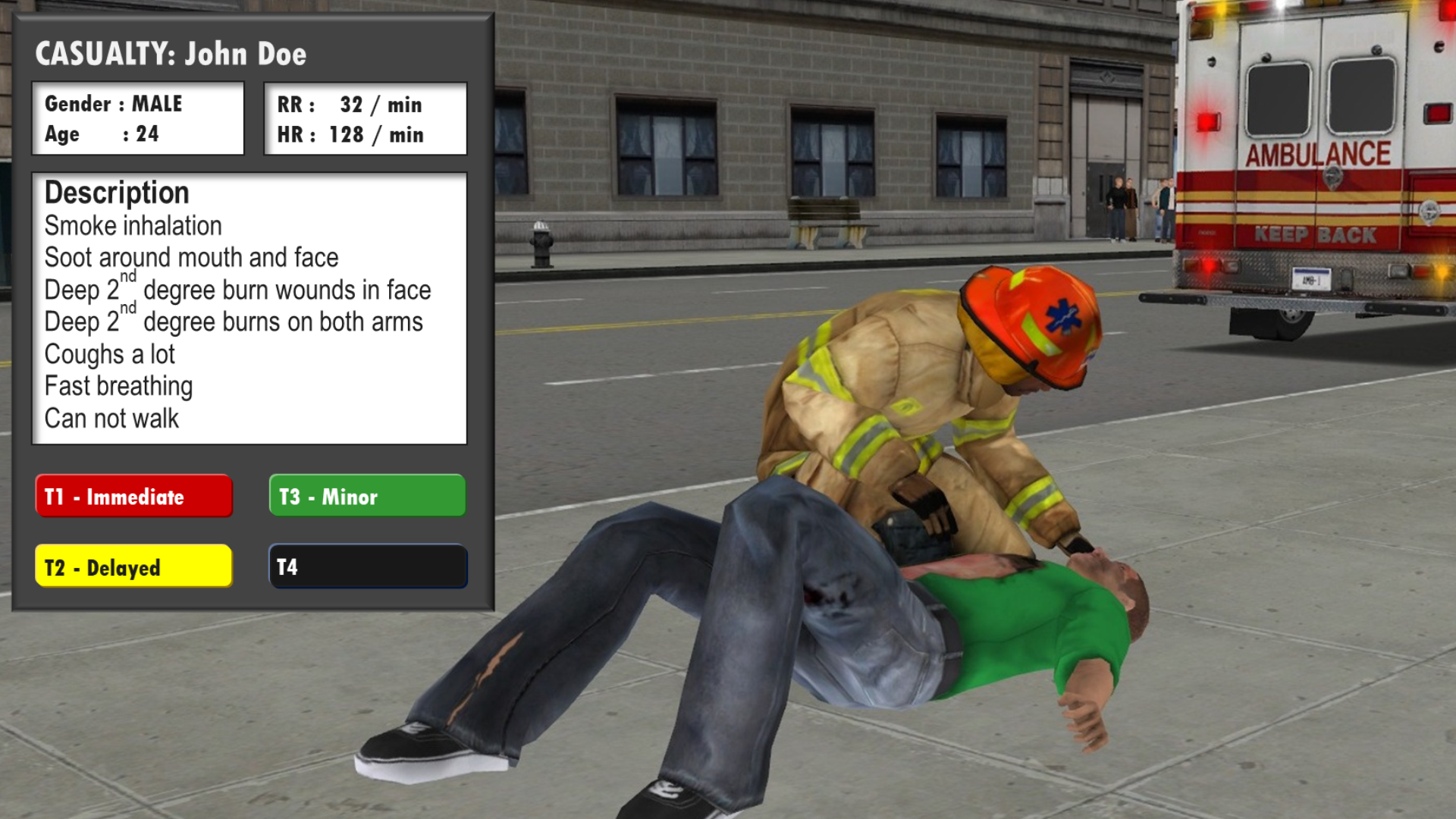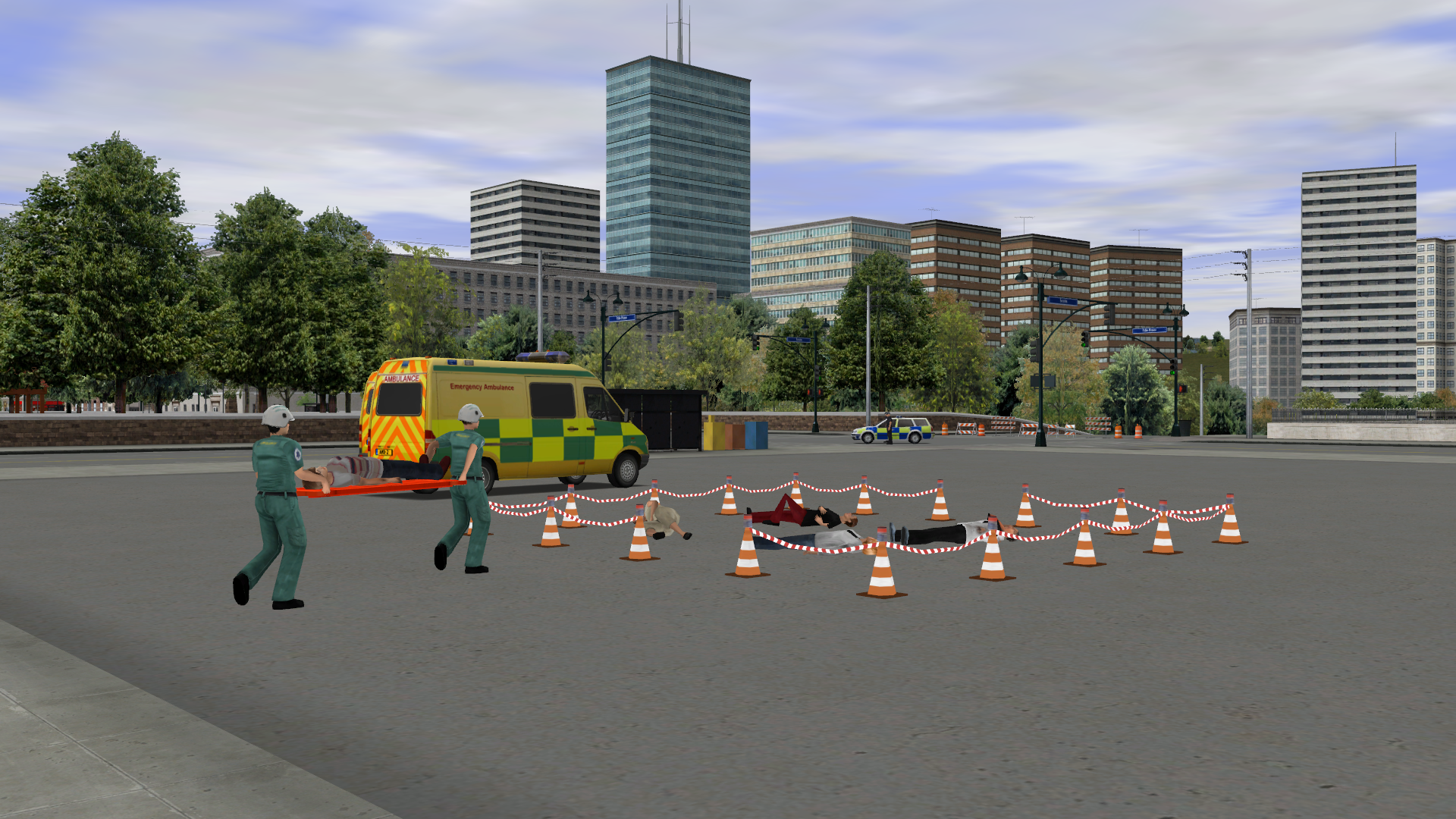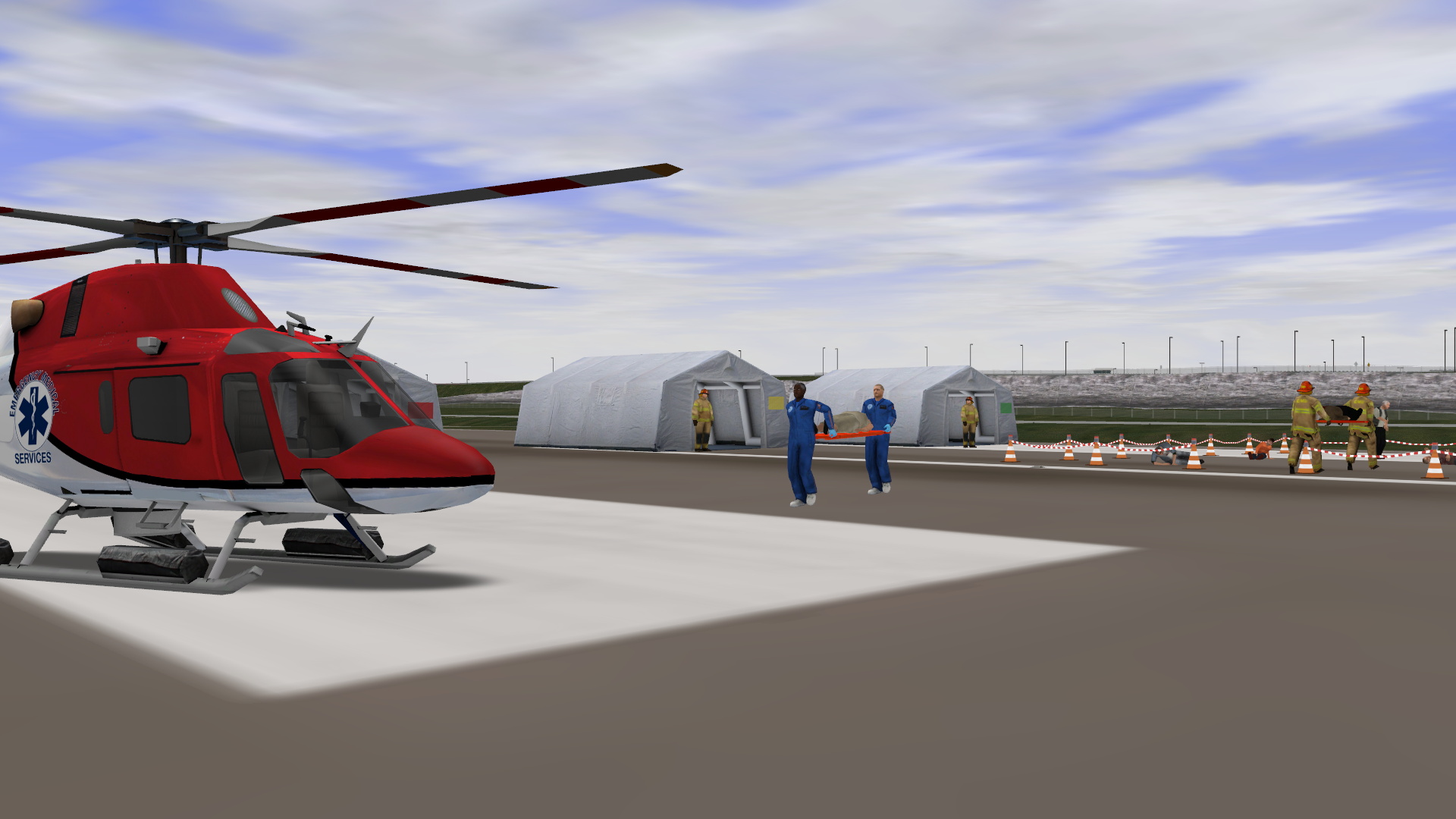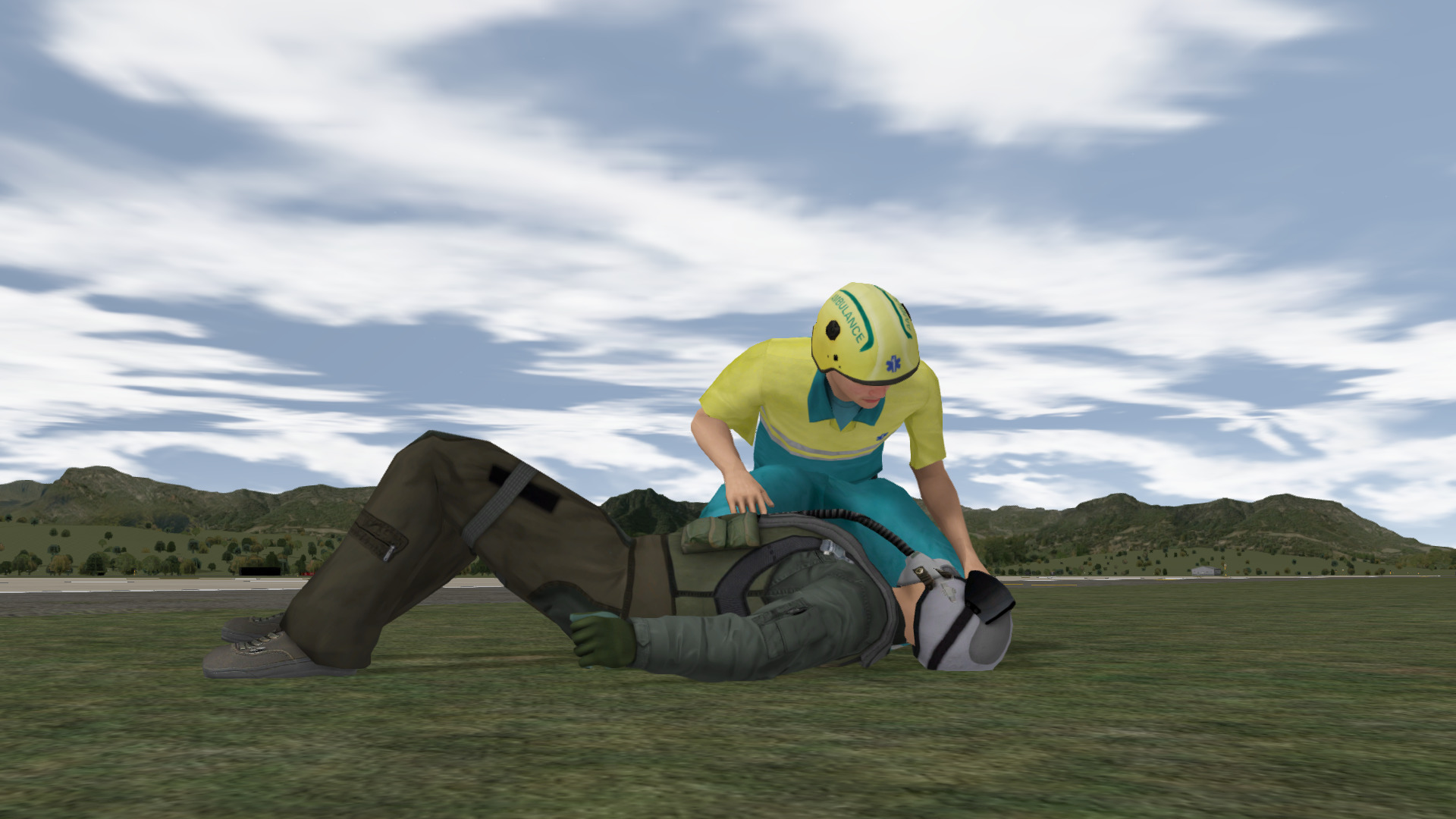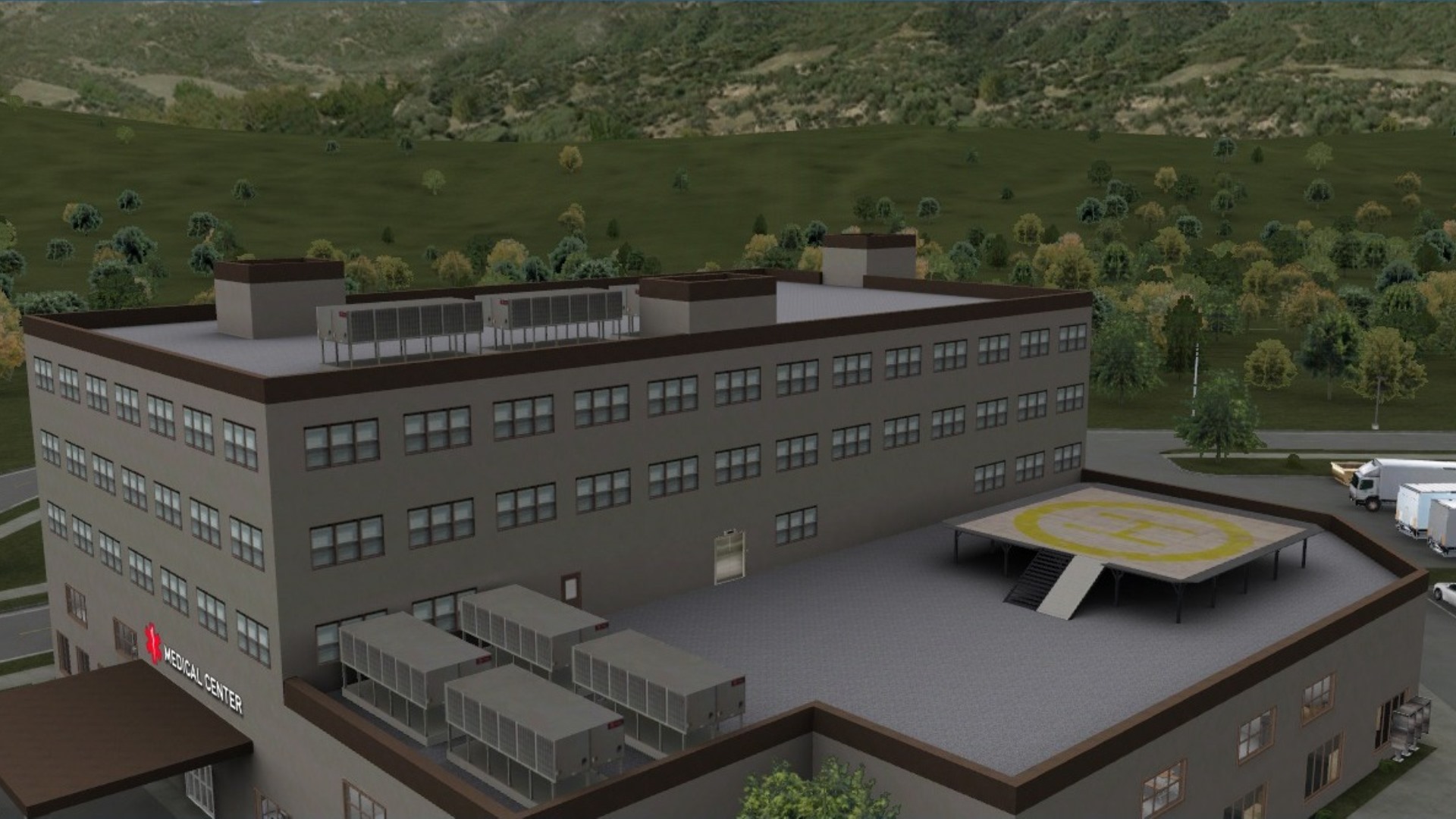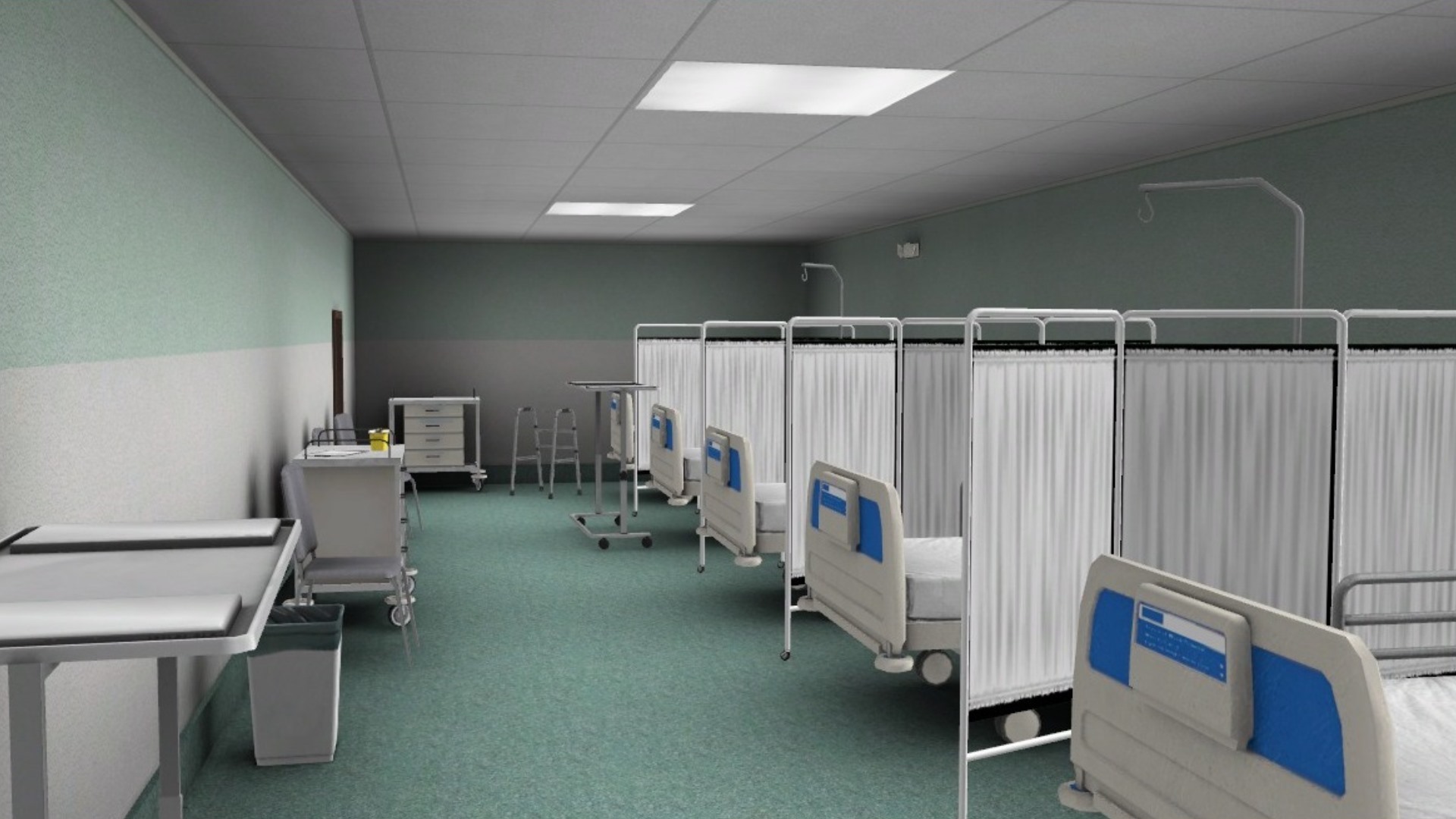Medical operations in ADMS
Emergency medical services personnel and first responders are critical components in the preparation, response, and recovery from all levels of incidents, emergencies, and disasters. For high-quality care with high efficiency, all members of the emergency medical response team must work together, mutually reinforcing, and supporting each other for the benefit of the patient. ADMS is designed to offer emergency medical services training focusing on command, control, coordination, and communication among all first responders under the direction of the incident commander and first receiver training at hospitals.
Simulating casualties
Emergency medical services, emergency medical technicians, and other members of the medical and emergency management community can be trained in response, triage, treatment, transportation, and pre-hospital care, whether as an individual or as part of a multi-disciplinary emergency management team. In a virtual world, trainees can assess casualties, observe vital signs, determine the severity of injuries, assign priorities and choose treatment and transportation options, all in a safe, controlled, and true-to-life environment. ADMS simulates the health status of the casualties as one of the real-life effects of the trainee’s interactive decisions.
Realistic Emergency Medical Training
Victims and staff behave realistically due to the embedded artificial intelligence, and the physics-based simulation makes the dynamic elements behave as they do in real life. Training with ADMS requires interactive decision-making that will affect the outcome of the training exercise; trainees experience the consequences of their decisions as they would in real-life situations. All exercise scenarios are open-ended, and the trainee’s choices control the development, resolution, or escalation of the situation. Emergency medical services, first responders and first receivers are committed to the preservation of life, the prevention of further injury, and the promotion of recovery. ADMS can help you prepare to meet these challenges efficiently and improve your capability to deliver emergency medical services during incidents of any magnitude.
